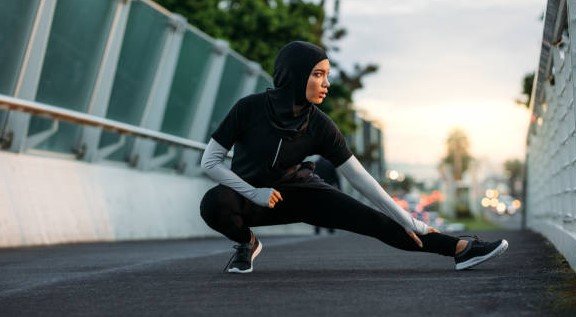Human rights advocates gathered at the 2025 Play the Game conference in Finland this week to demand an end to hijab bans in sports. They argue these rules exclude Muslim women and deny them equal opportunities in athletics, spotlighting France’s strict policies during the 2024 Paris Olympics and beyond.
Conference Highlights Key Concerns
Experts at the event stressed how hijab bans harm women’s participation in sports. Founding director of Sports Legal, Khayran Noor, pointed out that such restrictions “deny a space for women themselves” by forcing a choice between faith and competition.
The discussion unfolded over multiple sessions, drawing attendees from around the world. Advocates shared stories of athletes who quit sports due to these rules. One panel focused on how bans affect mental health, leading to feelings of isolation and lower self-esteem.
Frank Conde Tandberg from Amnesty International Norway called the bans unnecessary and urged global sports bodies to step in. He described the experience as humiliating, linking it to broader issues like exclusion and health problems.

France’s Ongoing Hijab Restrictions
France has enforced hijab bans in various sports for years, citing secularism as the core reason. The country barred its own athletes from wearing the head covering during the 2024 Olympics, even as international competitors could do so.
This policy extended to domestic leagues in football, basketball, and volleyball at all levels. In February 2025, the French Senate passed a bill banning religious symbols in all sporting events, sparking fresh debates.
President Emmanuel Macron supported the Olympic Charter’s stance on neutrality, but critics say it unfairly targets Muslim women. Former basketball player Helene Ba challenged this at the conference, calling the neutrality claim a cover for discrimination.
The bans trace back to 2004, when France outlawed religious symbols in schools. Over time, they spread to sports, affecting thousands of female athletes.
Global Reactions and Human Rights Views
International groups have condemned France’s approach. The United Nations human rights office criticized the Olympic ban in 2023, saying it violates personal freedoms.
Amnesty International released reports in 2024 highlighting how these rules breach human rights laws. They noted discriminatory impacts on Muslim women and girls, urging France to lift the bans.
During the 2024 Olympics, athletes from other nations wore hijabs without issue in the village, but French rules created a divide. This led to protests and calls from sports organizations for the International Olympic Committee to intervene.
Social media buzzed with outrage, with posts gaining millions of views. Users questioned why Muslim women face barriers while others compete freely.
Impacts on Athletes and Society
Hijab bans force many women to abandon sports dreams, reducing diversity in athletics. Studies show lower participation rates among Muslim girls in countries with such rules.
Mental health suffers too, with reports of anxiety and depression. Physical activity drops, contributing to health issues like obesity in affected communities.
Here are some key effects noted by advocates:
- Exclusion from team sports leads to social isolation.
- Loss of scholarships and career opportunities in athletics.
- Broader cultural divides that harm community integration.
On a positive note, groups like Basket Pour Toutes fight back by organizing inclusive events and legal challenges.
Timeline of Key Events
To understand the evolution, consider this overview of major developments:
| Year | Event | Details |
|---|---|---|
| 2004 | School Ban | France outlaws religious symbols in public schools, setting a precedent. |
| 2023 | UN Criticism | United Nations slams France’s planned Olympic hijab ban. |
| 2024 | Olympics Rule | French athletes barred from hijabs during Paris Games competitions. |
| 2025 | Senate Bill | New law extends ban to all sports, prompting conference discussions. |
This timeline shows a pattern of expanding restrictions despite global pushback.
Paths Forward for Change
Advocates propose solutions like updating sports federations’ rules to allow religious attire. They call on the International Olympic Committee to enforce inclusive policies worldwide.
Legal challenges continue, with groups filing cases in European courts. Education campaigns aim to shift public views on secularism and diversity.
Success stories from other nations, where hijabs are permitted, offer models. For instance, some basketball leagues now accommodate players, boosting participation.
As discussions grow, the push for equality in sports gains momentum. Readers, share your thoughts on this issue in the comments below and spread the word to support inclusive athletics.








